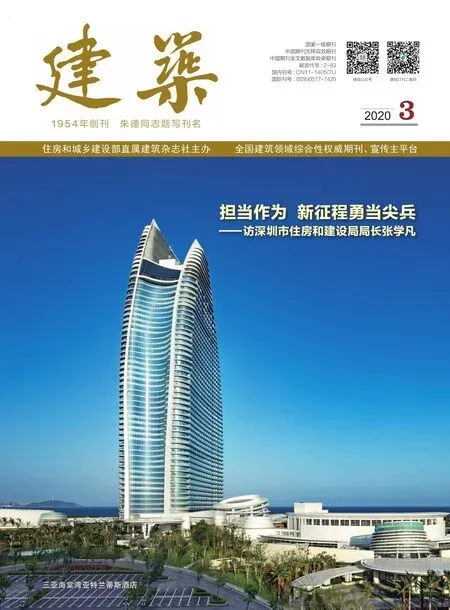工程合同译评(14)FIDIC文本中“保险的一般要求”条款(上)
文 / 李 健
FIDIC1999建造合同文本Conditions of Contract for Construction第18条专门就“保险Insurance”问题作出了约定。下面我们将讨论其子条款18.1 General Requirements for Insurances “18.1保险的一般要求”翻译中的语言及法律问题。
原文1:In this Clause,“insuring Party” means,for each type of insurance,the Party responsible for effecting and maintaining the insurance specified in the relevant Sub-Clause.
试译:在本条中,“投保方”是指在每一类型的保险中负责办理并保持相关条款规定的保险的当事人。
点评:1.本款是对投保人的定义,投保人应当办理保险并维持其效力。我们提醒注意,FIDIC并未笼统指出投保人是承包商或是业主,到底谁将是投保人,得看合同就具体保险标的subject matter of insurance所做的约定。
2.在语言上,这里及以下涉及到有关保险的一系列专业词汇。从保险(合同)insurance contract的当事人parties来定义保险合同,保险合同是投保人与保险人约定保险权利义务关系的协议;投保人是指与保险人订立保险合同,并按照保险合同负有支付保险费义务的人;保险人是指与投保人订立保险合同,并承担赔偿或者给付保险金责任的保险公司。(中国《保险法》)An insurance contract is an agreement whereby the insurance rights and obligations are specified and agreed by the applicant and the insurer.An applicant refers to the party who enters into an insurance contract with an insurer and is obligated to pay the premiums under the insurance contract.An insurer refers to the insurance company which enters into an insurance contract with an applicant and is obligated to make indemnity or payments of the insurance benefits (Insurance Law of the PRC).这里applicant,是投保人(字面意思是保险申请人);insurer,是保险人。原文中“insuring Party”,就是投保人,相当于applicant。有文献将insuring Party译成“保险当事人”或者“保险方”,这是错误的。我们从insuring Party中insuring的“主动”形式-ing中也可以体会到,insuring Party是那个“主动”办理保险的那一方当事人;“保险当事人”的译法,使这层意思消失了。还有文献将insuring Party译成“应投保方”,意思是对的,试译中未采用,试译采用的是中国《保险法》中“投保人”的称呼。
3.这里值得注意的一个动词是effect。Effect,通常作名词,“结果,效果,作用,影响”等意思;作动词用,不那么常见,“招致、引起、实现(目的)、作出、执行”等意思。Effect作动词时,表示完成某一目的明显、实现起来不那么困难、能看到一定实际效果的具体事项。原文中即用作动词。根据上下文意思,将effect the insurance译成“办理保险”。Effect作动词的其他例子如:The new President effected many changes.新总统作出了很多变革。
原文2:Wherever the Employer is the insuring Party,each insurance shall be effected with insurers and in terms approved by the Employer.These terms shall be consistent with any terms agreed by both Parties before the date of letter of Acceptance.This agreement of terms shall take precedence over the provisions of this Clause.
Wherever the Employer is the insuring Party,each insurance shall be effected with insurers and in terms consistent with the details annexed to the Particular Conditions.
试译:当承包商作为投保人时,承包商应当按照业主批准的条件与保险人办理每项保险。这些条件应当与双方在中标函日期前商定的条件相一致,且此商定的条件优先于本条的各项规定。
当业主作为投保人时,业主应当按照与专用条件后所附详细说明相一致的条件与保险人办理每项保险。
点评:1.这里两款分别规定的是承包商、业主作为投保人时各自的义务以及办理保险的条件。
2.若干有用表达。in terms,在……的条件下;be consistent with,与……一致;A take precedence over B,A优先于B;annexed to,附在……后面。此外,有文献将insurer译成“承包人”,意思也是正确的;但试译作“保险人”,采用的仍然是中国《保险法》中的称呼。
3.需要特别提醒承包商的是,承包商作为投保人时,FIDIC允许承包商与业主进一步商讨详细的保险条件,但要求这些详细条件不违背双方在中标函日期the date of letter of Acceptance之前达成的条件;但就这些条件达成具体协议的内容与本条规定不一致时,协议的内容的效力优先take precedence over the provisions of this Clause。事实上,在承包商提交投标书之前,业主很可能在其编制的投标人须知中,就列明了要求投标人(即承包商)提供他们办理保险的细节,如保险条件、限额及其他操作性条款等。这些对减少争议是有价值的。但是,根据条文表述,我们可以推论,如果在中标函发出前双方没有能够就保险条件达成一致,则承包商办理保险应当符合本条(即18 Insurance)规定。
4.特别注意,这两款中,原文都没有揭示办理保险的义务人具体是谁,只是说保险该在什么条件下办理,用的是被动句;但试译中都按照理解分别采用了主动句,直接将义务人揭示出来了。除非有意模糊处理,笔者希望中国的合同谈判人在合同谈判时多采用直接将义务人或权利人作为句子主语的主动句表达,这样更有利于清晰看出义务该由何人履行、权利还有何人行使。
原文3:If a policy is required to indemnify joint insured,the cover shall apply separately to each insured as though a separate policy had been issued for each of the joint insured.If a policy indemnifies additional joint insured,namely in addition to the insured specified in this Clause,(i) the Contractor shall act under the policy on behalf of these additional joint insured except that the Employer shall act for Employer’s Personnel,(ii) additional joint insured shall not be entitled to receive payments directly from the insurer or to have any other direct dealings with the insurer,and (iii) the insuring Party shall require all additional joint insured to comply with the conditions stipulated in the policy.
试译:如果保险单需要对联合被保险人提供保障,则该保险应当分别适用于联合被保险人中的每一个人,如同向联合被保险人中的每一个人分别发出过单独的保险单一样。如果保险单还对附加联合被保险人(即本条规定的被保险人以外的被保险人)提供保障,则(1)承包商应当为附加联合被保险人代理保单下的事项,业主代理其雇员的除外;(2)附加联合被保险人无权直接从保险人处获得支付或直接与保险人办理其他业务;(3)投保人应当要求所有附加被保险人遵守保险单规定的条件。
点评:1.本条是关于联合保险人joint insured和附加联合保险人additional joint insured的约定。
2.本条中有若干重点词汇常被误译,首先就是policy,常被误译做“政策”。Policy,的确有“政策”或“策略”的意思,但在保险的场合,它是“保单、保险单”或“保险合同”的意思。这里引用兰登书屋《袖珍英汉法律词典》Legal Dictionary关于保险insurance的解释,我们从中可以非常清晰地理解Policy作为“保单、保险单”或“保险合同”的意思。Insurance: a contractual arrangement whereby a company (the insurer),in consideration for a payment or periodic payments of money (the premium),agrees to compensate its customer (the insured) in the event that the insured suffers some loss or injury(in the case of indemnity insurance) or liability (in the case of liability insurance) of a kind specified in the written contract (the policy).其实,这个定义不仅清晰地显示了Policy是一份书面合同the written contract,在保险场合即“保单、保险单”或“保险合同”,还揭示了indemnity作为“赔偿、赔偿物”或“保障(免受损失)”的意思,是原文中动词indemnify的名词形式。另外,这个insurance定义中的in consideration for是“作为……的对价”的意思。
3.其次,文中cover也是一个常被误解的词汇。在保险的场合,cover,可以做名词“保险”理解,也可以做动词“办理保险,承保”理解。兰登书屋《袖珍英汉法律词典》Legal Dictionary对作为动词的cover是这样解释的:(of an insurer or insurance policy) to protect a certain person or property against a certain risk.例如:My health insurance policy covers my children but does not cover cosmetic surgery.我的健康保单对我的孩子进行了保险,但没有对整形手术进行保险。The goods are covered against fire.这些货物已投保火险。Many people are covered by private health insurance.很多人投保了个人健康险。
4.前面我们说,从insuring Party中insuring的“主动”形式-ing中可以体会到,insuring Party是那个“主动”办理保险的那一方当事人;这里与此相对照,the insured,从其“被动”形式-ed中也可以体会到,它是那个“被动”得到保险保护的那个人,即“被保险人”。这应当没有什么疑义。但还有一个词也表示“被保险人”,即insurant,在一些中国法律和合同文本对外译介中经常看到。但是,笔者不建议使用这个词,两个原因,其一是这个词已经属于不那么常用的英文词汇;其二这个词在字面上对“主动”“被动”意义的显示不那么直接,常易导致误解。
5.原文中the Contractor shall act under the policy on behalf of these additional joint insured…,有关文献这样翻译,“承包商应代表这些附加联合被保险人根据保险单行动”;意思是对的,但大约没有注意到“act on behalf of ”这个词组就是“代理”的意思。试译作“承包商应当为附加联合被保险人代理保单下的事项”,读者可以对比体会,哪一个更符合中文表达习惯。

